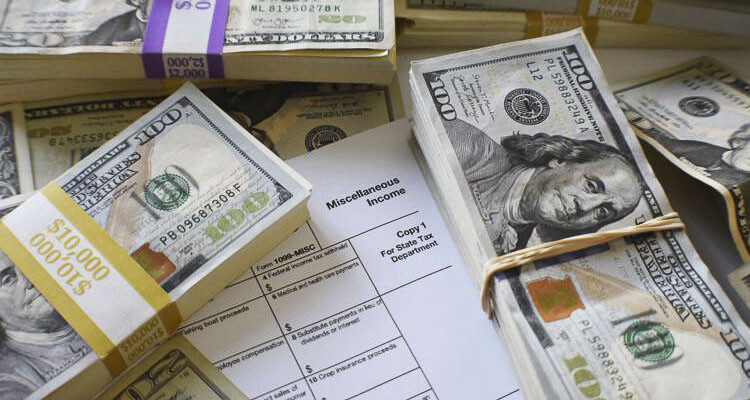
The petition was submitted Monday by the Olympia-based Freedom Foundation on behalf of nine individual plaintiffs
Randy Bracht
The Center Square Washington
A group of citizens and a conservative think tank have petitioned the U.S. Supreme Court to review the Washington State Supreme Court’s ruling on a controversial capital gains tax.
The petition was submitted Monday by the Olympia-based Freedom Foundation on behalf of nine individual plaintiffs. Named as respondents were the State of Washington, the state Department of Revenue, and Revenue director Vikki Smith.
The petitioners are asking the high court to consider the constitutionality of the tax, which they consider to be illegal.
It was enacted in 2021 by a narrow majority in Washington’s Democratic-majority Legislature and supported by Gov. Jay Inslee.
The petitioners say Washington’s state constitution mandates that all taxes on “property,” including income, must be uniform and capped at 1%.
To get around that limit, petitioners allege, proponents of the new law labeled it an “excise tax” – not an income tax – that places a 7% tax on long-term capital gains while exempting the initial $250,000 per year.
“… while that may have solved a state-law problem, it created a federal-law problem,” the petition states, noting that many securities transactions occur outside of Washington’s borders. That raises the question: does the U.S. Constitution permit a state to tax out-of-state transactions involving only out-of-state property?
The petition seeks a writ of certiorari, or judicial review of a lower court’s ruling. If the U.S. Supreme Court accepts the case, it will be reviewing the Washington State Supreme Court’s 7-2 decision in March that found the tax to be an excise tax, not an income tax.
Washington is one of nine states without an income tax, which places a heavy reliance on sales and fuel taxes to meet public expenses. Consequently, lower-income persons are disproportionally burdened compared to wealthy individuals, say supporters of the capital gains tax, which applies to only an estimated 7,000 state residents.
Forty-one other states tax capital gains as income, not as an excise tax, which is considered more broadly as a levy on certain goods, services, or activities.
Washington voters have rejected numerous prior attempts to amend the state constitution to impose income taxes.
Following its enactment in 2021, the new law was challenged by wealthy individuals, business and agricultural interests who claimed it violated state and federal constitutions. That view was supported last year by Douglas County Superior Court Judge Brian Huber, who ruled that the measure was in fact an income tax.
Huber’s ruling in the lawsuit, Quinn v. State, was appealed to the state Supreme Court by Washington Attorney General Bob Ferguson, a Democrat.
In its appeal to the U.S. Supreme Court, the Freedom Foundation contends the capital gains tax violates the Commerce Clause of the U.S. Constitution, which reserves to Congress – not individual states – the right to regulate interstate commerce.
While conceding that Washington’s law only affects a relatively small number of state residents, critics of the capital gains tax fear it could open the door to a graduated income tax.
“Washington’s liberals in every branch of government have long lamented the absence of an income tax in the state and sought ways to generate additional revenue by taxing high earners at a higher rate than those earning less,” the foundation said in a news release Monday.
“The framers of the Washington State Constitution recognized that earning should be encouraged, not punished, because economic success benefits everyone,” said Eric Stahlfeld, Freedom Foundation chief litigation counsel. “And more than 100 years of court precedent have supported that view.
“Had this case been heard by a federal court instead of state court, it would already have been thrown out,” Stahlfeld contended.
The listed petitioners are Chris Quinn, Craig Leuthold, Suzie Burke, Lewis Randall, Rick Glenn, Neil Muller, Larry and Margaret King and Kerry Cox.
The U.S. Supreme Court is under no obligation to grant a writ of certiorari, and usually only opts to hear cases of national significance. Four of the nine justices must agree to accept a case, and the court accepts 100 to 150 cases from more than 7,000 cases it asked to consider to review each year. The court begins its annual session on the first Monday in October.
This report was first published by The Center Square Washington.
Also read:
- House Democrats advance $18B in tax hike proposals as session winds downHouse Democrats in Washington advanced several tax hike proposals as the legislative session nears its end, aiming to address a major budget shortfall.
- Republican budget leaders see showdown ahead as Senate Democrats approve trio of major tax increasesSenate Democrats in Washington have approved major tax increases, prompting Republican budget leaders to warn of a growing showdown ahead.
- Representatives from the 18th and 20th Legislative Districts to hold joint town hall on May 3Lawmakers from the 18th and 20th Legislative Districts will host a joint town hall on May 3 at Battle Ground City Hall to review the legislative session and hear from residents.
- Expect delays on northbound I-5 near Ridgefield through May 9Northbound I-5 travelers near Ridgefield should expect delays through May 9 as crews work on improvements at the Exit 14 off-ramp to support future development.
- Brandon Erickson announces candidacy for Clark County Charter Review CommissionBrandon Erickson has announced his candidacy for the Clark County Charter Review Commission, seeking Position 1 in District 2.
- Clark County Sheriff’s Office investigating a reported burglary that led to apparent suicideThe Clark County Sheriff’s Office is investigating a reported burglary in Vancouver that ended with the apparent suicide of Charles Gardiner, interim chief of the Cowlitz Tribal Public Safety Department.
- POLL: Why did voters reject all three tax proposals in the April 22 special election?Clark County voters rejected all three tax measures on the April 22 special election ballot, prompting questions about trust, affordability, and communication.











